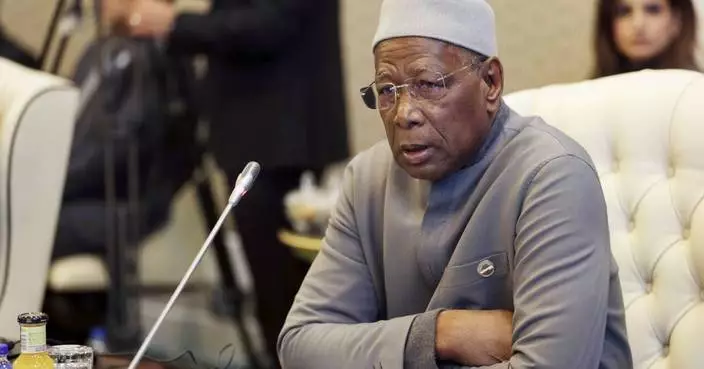A prominent human rights organization on Thursday accused Libyan armed groups linked to the Tripoli-based government of using heavy weapons to disperse anti-corruption rallies last month in the capital and of detaining, torturing and forcibly disappearing protesters.
Human Rights Watch said the militias used machine guns and vehicle-mounted anti-aircraft guns against protesters, allegedly killing one and wounding others in late August. At least 24 people, including a local reporter, were detained and beaten, it said.
“Political divisions and security concerns do not justify armed groups coming at protesters with machine guns and anti-aircraft weapons to intimidate them and disperse protests,” said Hanan Salah, senior Libya researcher for HRW. “Tripoli authorities should investigate and publicly disclose the names of the armed groups and commanders who failed to comply with basic policing standards and hold them to account.”
A government spokesman could not immediately be reached for comment.
Last month, hundreds of Libyans took to the streets of Tripoli and other cities under the U.N.-supported government of Prime Minister Fayez Sarraj to protest deteriorating economic conditions. At the time, Interior Minister Fathi Bashaga acknowledged that a militia group, which he did not name, had fired live ammunition at the peaceful protesters and that an investigation was underway. Subsequently, Sarraj briefly relieved Bashaga of his duties for questioning.
Earlier, Sarraj had said in a televised speech that protesters did not have a permit to gather and announced a 24-hour curfew to fight the coronavirus pandemic, a move that protesters believed was meant to keep them from rallying.
The New York-based rights group named three militias with ties to Sarraj's government as the perpetrators of the violations, including the Interior Ministry-linked Al-Nawasi Brigade, the Special Deterrence Force and General Security.
Militias have played a key role in Libya's civil war, with the U.N.-supported government employing an array of groups to fight their rivals in the east. The militias have proved difficult for the Tripoli government to control in the past.
Libya was plunged into chaos when a NATO-backed uprising in 2011 toppled longtime dictator Moammar Gadhafi, who was later killed. The county has since been split between rival east- and west-based administrations, each backed by armed groups and foreign governments.
Human Rights Watch said it interviewed 19 people, including demonstrators, their relatives and friends and examined photographs and video of security forces using excessive force.
HRW cited relatives and friends of two released protesters who were held in a military base for four days as saying both men told them they were tortured and forced to sign pledges that they would not engage in any future anti-government rallies. A recent media report said 13 protesters were released and that around eight remain in custody.
“Criminal justice authorities should promptly present all remaining detainees to a judge to determine the legality of their detention and should either charge them promptly with a crime or release them, as detention before trial should be the exception not the rule,” the HRW report said.
Meanwhile, the U.N. mission in Libya said Thursday that lawmakers from the country's rival administrations agreed to hold presidential and parliamentary elections after an 18-month transitional period.
After three days of U.N.-sponsored talks in the Swiss city of Montreux, the delegations reached a “consensual view” on the need to form a national unity government that would be in charge of providing services to the Libyan people and to create “the necessary conditions” for the holding of national elections, said the statement. The parties also agreed on reforming” the Tripoli-based government — which can effectively lead to replacing Sarraj.
The U.N. mission commended “the goodwill and national dedication of the Libyan participants who seized this opportunity to put aside their longstanding differences and disputes to recommend a Libyan-Libyan solution that can be put on the table."
Libya’s dueling governments recently resumed talks after each declared a unilateral cease-fire, following nearly 15-month of fighting that culminated in the direct involvement of foreign powers and threatened to turn the conflict into a protracted proxy war. Similar talks between Libyan politicians have been underway since Sunday in the Moroccan city of Bouznika.
The U.N. mission said the participants proposed temporarily moving key government offices to the contest city of Sirte, which is still under control of forces allied with Libya's east-based administration. The Tripoli-based government had previously urged the demilitarization of the strategic city, which stands as the gateway to the country's oil fields.
The U.N. also urged the international community to fully support negotiations between Libya's warring sides and “to shoulder its responsibilities to support this process and to unequivocally respect the Libyan people’s sovereign right to determine their future.”
The U.S. Embassy in Libya welcomed “the constructive" talks between the Libyan rivals and hailed the U.N.'s “tireless efforts” to end the conflict.
“We are confident that a brighter future is possible as responsible Libyan parties come together in peaceful dialogue and with full respect for Libya’s sovereignty,” the embassy said.
Forced to hide her true self, Joe Horras’ transgender daughter struggled with depression and anxiety until three years ago, when she began to take medication to block the onset of puberty. The gender-affirming treatment helped the now-16-year-old find happiness again, her father said.
A decision by the U.S. Supreme Court late Monday allowing Idaho to enforce its ban on such care for minors could jeopardize her wellbeing once again. Horras is scrambling to figure out next steps and is considering leaving Idaho, where he's lived his whole life, to move to another state.
"It would be devastating for her," Horras, who lives in Boise, told The Associated Press. “If she doesn’t have access to that, it will damage her mental health."
Horras is among the Idaho parents desperate to find solutions after their trans children lost access to the gender-affirming care they were receiving. The U.S. Supreme Court's decision allows the state to put in place a 2023 law that subjects physicians to up to 10 years in prison if they provide hormones, puberty blockers or other gender-affirming care to people under age 18. A federal judge in Idaho had previously blocked the law in its entirety.
The ruling will hold while lawsuits against the law proceed through the lower courts, although the two transgender teens who sued to challenge the law will still be able to obtain care.
At least 24 states have adopted bans on gender-affirming care for minors in recent years, and most of them face legal challenges. Twenty of those states besides Idaho are currently enforcing the bans.
Monday’s ruling was the first time the U.S. Supreme Court waded into the issue. The court’s 6-3 ruling steered clear of whether the ban itself is constitutional. Instead, the justices went deep into whether it’s appropriate to put enforcement of a law on hold for everyone, or just those who sue over it, while it works its way through the courts.
In his concurring opinion, Justice Neil Gorsuch said “lower courts would be wise to take heed” and limit use of “universal injunctions” blocking all enforcement of laws that face legal challenges. In a dissent, Justice Ketanji Brown Jackson said the court should not decide the fate of those actions without reading legal briefs and hearing arguments on the issue.
Rights groups in Idaho are supporting families to make sure they're aware the measure has taken effect. The American Civil Liberties Union of Idaho said it plans to hold a virtual event over Zoom with licensed counselors and legal experts to help people process the shock and answer any questions they may have about the law.
“Yesterday was really just an outpouring of fear, questions, people trying to figure out how this is going to affect them personally,” said Jenna Damron, the group's advocacy fellow. “Getting information out quickly that is accurate is kind of our first priority.”
Paul Southwick, legal director for ACLU of Idaho, said the group wants families to know what their options are.
“Gender-affirming medical care is now immediately illegal for minors in the state of Idaho. However, care remains legal for adults, and it’s also legal for minors to seek gender-affirming medical care out of state,” he said.
In Boise, Horras' 16-year-old daughter wears an estrogen patch and receives estrogen injections every six months. Her last shot was in December and Horras now has two months to find a new out-of-state provider who can continue administering the medication. The situation has left him feeling scared, he said, and angry toward the state politicians who passed the law last year.
“It's cruel,” he said.
Advocates, meanwhile, worry that lower-income families won't be able to afford to travel across state lines for care. Arya Shae Walker, a transgender man and activist in the small city of Twin Falls in rural southern Idaho, said he was concerned that people would alter the doses of their current prescriptions in order to make them last longer. His advocacy group has already taken down information on its website on gender-affirming care providers for young people in the area out of concern of potential legal consequences.
The broader issue of bans on gender-affirming care for minors could eventually be before the U.S. Supreme Court again. Last year, a ban on gender-affirming care for minors in Arkansas was shot down by a federal judge, while those in Kentucky and Tennessee were allowed to be enforced by an appeals court after being put on hold by lower-court judges. Montana’s law is not being enforced because of a ruling from a state judge.
Laws barring transgender youth from playing on sports teams that align with their gender identity are also being challenged across the country. An appeals court on Tuesday ruled that West Virginia’s transgender sports ban violates the rights of a teen athlete under Title IX, the federal civil rights law that prohibits sex-based discrimination in schools. Hours later, an Ohio law that bars transgender girls from girls scholastic sports competitions was put on hold by a judge. Set to take effect next week, the law also bans gender-affirming care for transgender youth.
Those who support the bans say they want to protect children and have concerns about the treatments themselves.
Gender-affirming care for youth is supported by major medical organizations, including the American Medical Association, the American Academy of Pediatrics and the American Psychiatric Association. However, England is limiting the ability of people younger than 16 to begin a medical gender transition.
The National Health Service England recently cemented a policy first issued on an interim basis almost a year ago that sets a minimum age at which puberty blockers can be started, along with other requirements. NHS England says there is not enough evidence about their long-term effects, including “sexual, cognitive or broader developmental outcomes.”
Medical professionals define gender dysphoria as psychological distress experienced by those whose gender expression does not match their gender identity. Experts say gender-affirming therapy can lead to lower rates of depression, suicidal thoughts and suicide attempts among transgender people.
Chelsea Gaona-Lincoln, executive director of Idaho-based advocacy group Add The Words, said she's anticipating “a pretty horrendous ripple effect.” But seeing her community uniting in support has given her a glimmer of hope.
“There are people coming together, and it’s so important, for especially our youth, to feel seen and affirmed as they are," she said.
Southwick, the legal director of ACLU of Idaho, said the 9th U.S. Circuit Court of Appeals is expected to hold a hearing this summer on its lawsuit challenging the law.
Associated Press writer Geoff Mulvihill in Cherry Hill, New Jersey, contributed.
This story was first published on April 16, 2024. It was updated on April 18, 2024, to make clear that the 20 states enforcing bans on gender-affirming care for minors are in addition to Idaho and all are among the 24 that have passed laws imposing the bans.
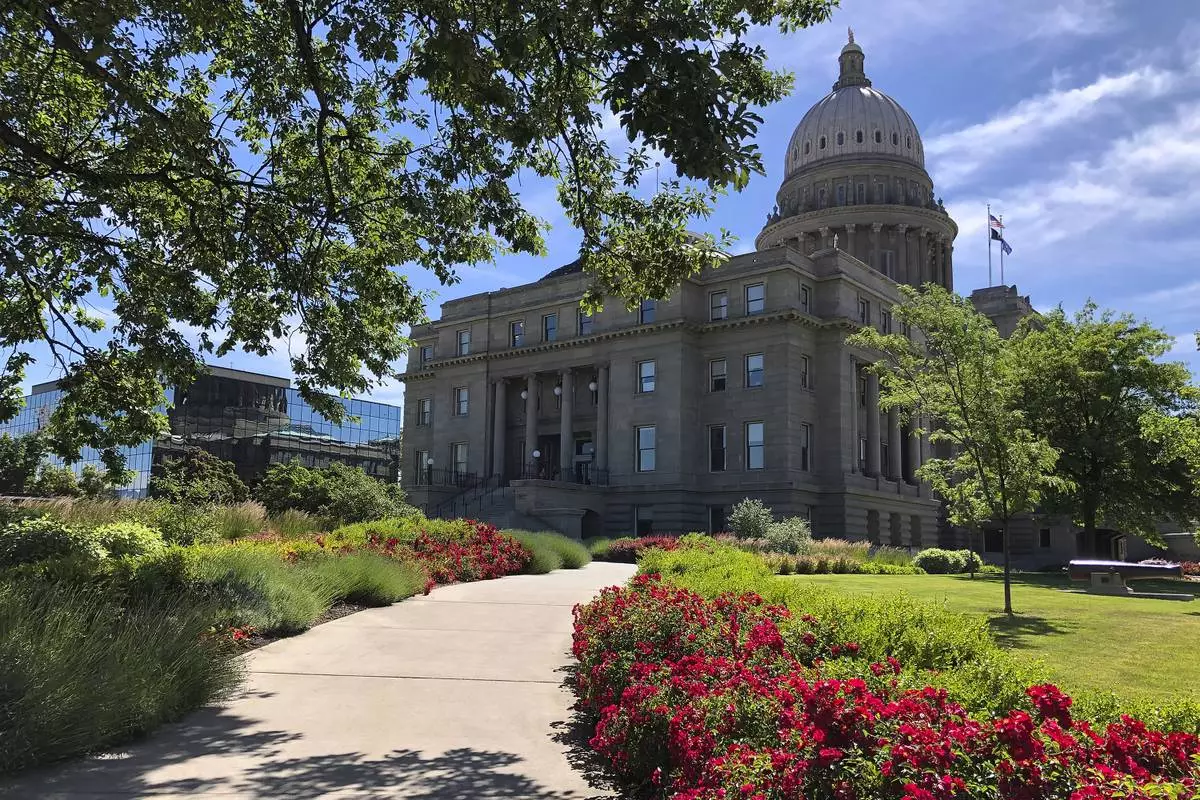
FILE - The Idaho State Capitol in Boise, Idaho, is seen on June 13, 2019. The U.S. Supreme Court's decision on Monday, April 15, 2024, allows the state to put in place a 2023 law that subjects physicians to up to 10 years in prison if they provide hormones, puberty blockers or other gender-affirming care to people under age 18. A federal judge in Idaho had previously blocked the law in its entirety. (AP Photo/Keith Ridler, File)
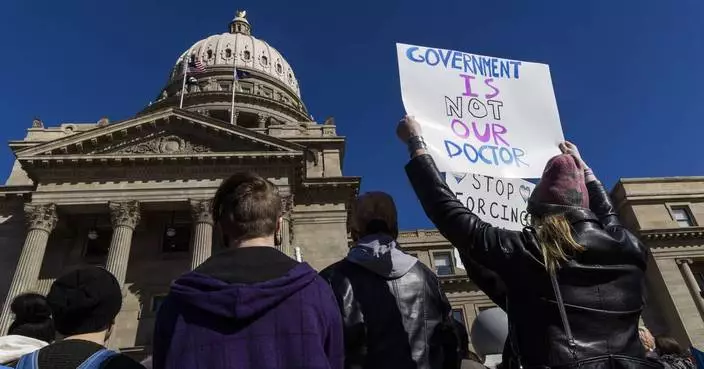
Idaho's ban on youth gender-affirming care has families desperately scrambling for solutions
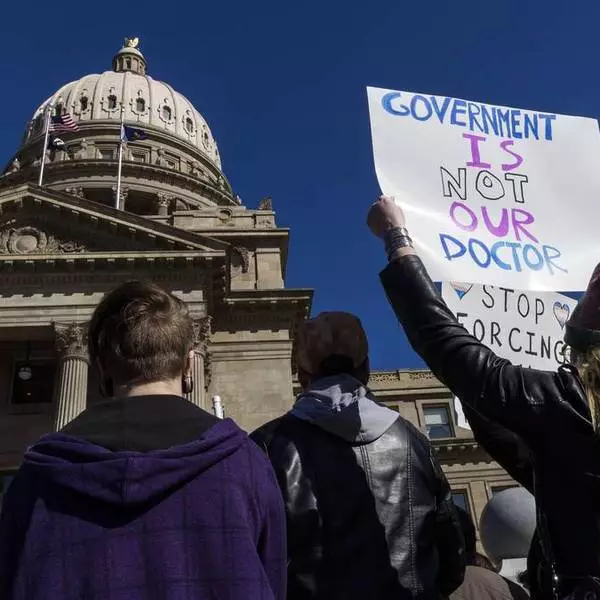
Idaho's ban on youth gender-affirming care has families desperately scrambling for solutions
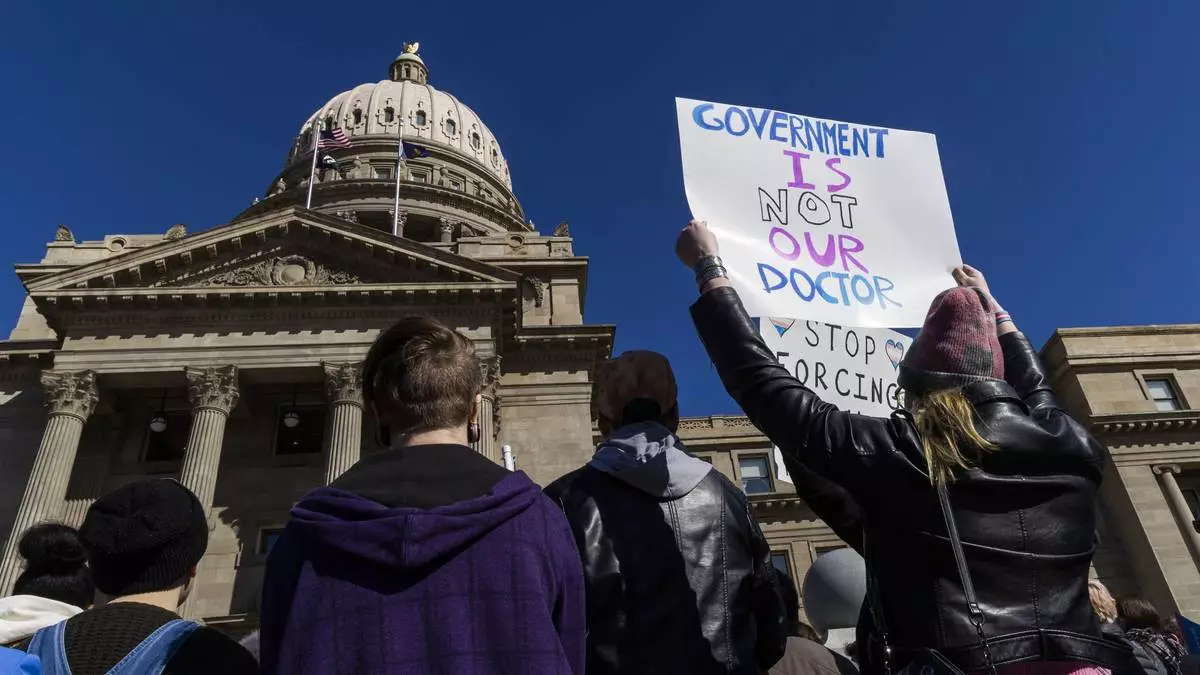
FILE - People gather in front of the Idaho Statehouse in opposition to anti-transgender legislation moving through an Idaho Republican congress, Friday, Feb. 24, 2023, in Boise, Idaho. The U.S. Supreme Court's decision on Monday, April 15, 2024, allows the state to put in place a 2023 law that subjects physicians to up to 10 years in prison if they provide hormones, puberty blockers or other gender-affirming care to people under age 18. A federal judge in Idaho had previously blocked the law in its entirety. (Darin Oswald/Idaho Statesman via AP, File)







